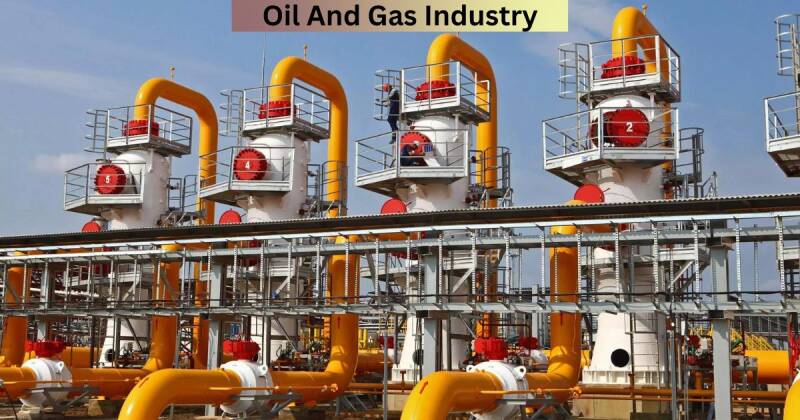
The oil and gas sector is the most valuable industry globally. The industry relies on the transport of oil and gas from places of extraction to the refining and storage facilities. The transportation of these products requires durable and robust pipelines that can withstand high temperatures, pressures, and chemical corrosion. Alloy steel pipes play a vital role in the oil and gas industry. This post will explore the role of alloy steel pipes in the oil and gas sector. For more information about Alloy Steel Pipes Visit here.
About Alloy Steel Pipes
Alloy steel pipes are made from a combination of different metals, including carbon, manganese, and chromium, Molybdenum. They offer several advantages over other types of pipes due to their unique properties, such as high strength, corrosion resistance, and durability. Alloy steel pipes are used in various industries, including oil and gas, power generation, and manufacturing, for transportation of fluids and gases, high-pressure systems, and structural uses. These pipes can withstand extreme temperatures and pressure, making them ideal for harsh environments. Alloy steel pipes can also be easily welded or fabricated to meet specific requirements, making them a versatile and cost-effective option for many industrial applications.
Advantages And Benefits Of Using Alloy Steel Pipes In Oil And Gas Industry.
Durability:
Alloy steel pipes are known for their durability and long-lasting qualities. They can withstand high pressure and temperature levels, making them a popular choice for oil and gas transportation. Their strength and flexibility make them ideal for harsh environments and extreme weather conditions.
Resistance to Corrosion:
The oil and gas industry is known to have corrosive effects on pipelines. The materials used for the pipelines have to be able to withstand the corrosive effects of saltwater, hydrogen sulfide, and other chemicals. Alloy steel pipes are corrosion-resistant, making them ideal for use in the oil and gas industry.
Versatility:
Alloy steel pipes come in various grades and sizes, making them versatile enough to be used in different applications within the oil and gas sector. They can be customized to specific requirements and used in upstream and downstream activities, from exploration and drilling to processing and refining.
Cost-Effective:
In the long run, alloy steel pipes are cost-effective compared to other materials such as plastic or iron. They can last for many years without the need for frequent replacement, helping to save money on maintenance and repair costs. This makes it a better investment for companies and organizations in the oil and gas sector.
Safety:
Safety is a top priority in the oil and gas industry, and alloy steel pipes contribute to this. Due to their strength and durability, they are less likely to experience leaks or fractures, keeping people and the environment safe from harm.
Types and Grades of Alloy Steel Pipes Used In Oil And Gas Applications
Alloy steel pipes used in oil and gas applications can come in different grades and types to meet specific requirements. Some common types include seamless and welded pipes, which can withstand high temperatures and pressure. Grades of alloy steel pipes used in oil and gas applications may vary depending on the specific project and environmental conditions. Some common grades include ASTM A335, P5, P9, P11, P22, and P91, which offer excellent resistance to high temperatures and corrosion. Other grades, such as ASTM A691, are also used for high-pressure applications. These pipes can be customized to meet specific project requirements, ensuring optimal performance and safety.
Alloy Steel Pipe Sizes and Specifications For Oil and Gas Projects
Alloy steel pipes are widely used in oil and gas projects due to their strength and durability. These pipes come in various sizes and specifications to meet the demands of various applications and environments. The size of an alloy steel pipe is typically indicated by its nominal diameter (DN) or its outside diameter (OD), which can range from ½ inch to over 36 inches. The wall thickness of the pipe is also an important factor, as it affects the flow rate and pressure of the fluid or gas being transported. Alloy steel pipes can have various wall thicknesses, ranging from schedule 10 to schedule XXS, depending on the application and requirements.
Specifications for alloy steel pipes in oil and gas projects may vary depending on the location, type of project, and the specific fluids or gases being transported. Common specifications for alloy steel pipes include ASTM A335, ASTM A691, and ASTM A213. These standards specify the chemical composition, mechanical properties, and testing requirements for alloy steel pipes.
In addition to standard sizes and specifications, alloy steel pipes can be customized to meet specific project requirements, including non-standard sizes, wall thicknesses, and lengths. Pipe fittings and flanges can also be customized to fit seamlessly with the alloy steel pipes, ensuring optimal performance and safety.
Overall, alloy steel pipes are essential in oil and gas projects due to their strength, durability, and versatility. Their wide range of sizes and specifications allows them to meet the demands of various applications and environmental conditions.
Conclusion:
Alloy steel pipes are critical in the oil and gas industry. Their durability, resistance to corrosion, versatility, cost-effectiveness, and safety features make them ideal for use in the sector. As we continue to witness the industry's growth globally, it is essential to prioritize selecting the right materials for the job. Alloy steel pipes are a reliable option that delivers value for money in the long term.

Add comment
Comments